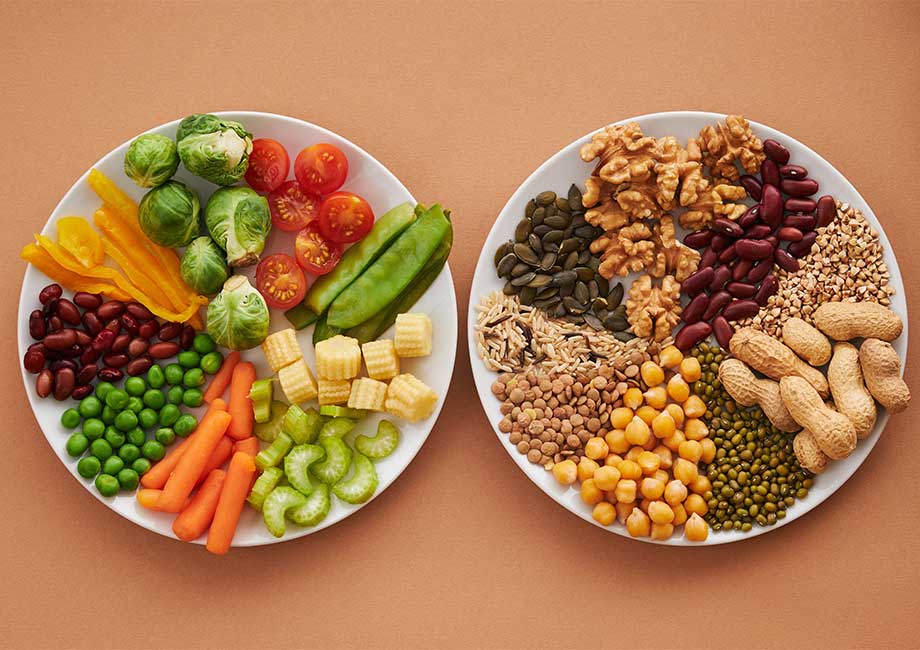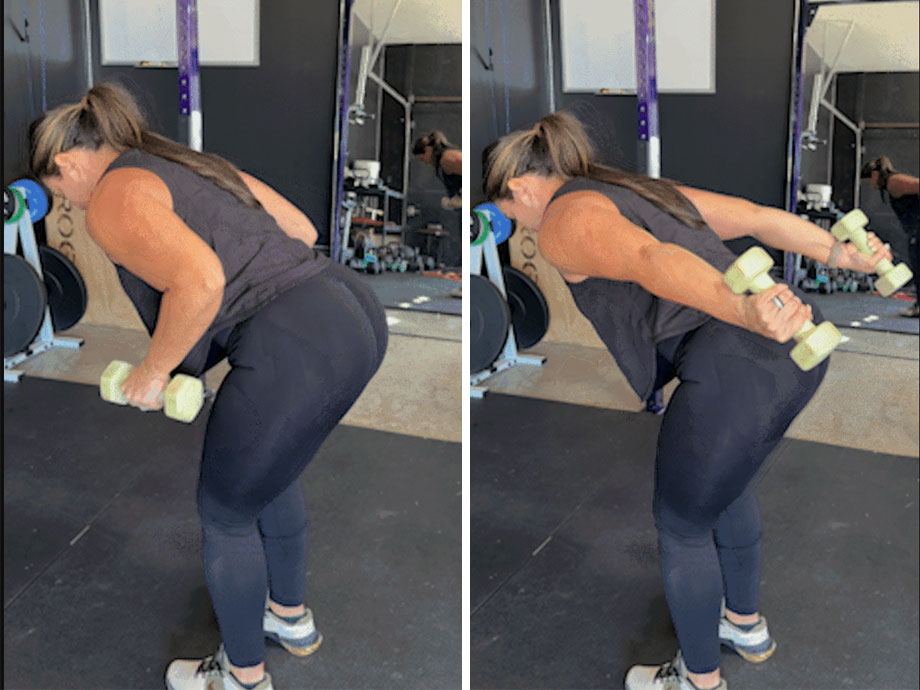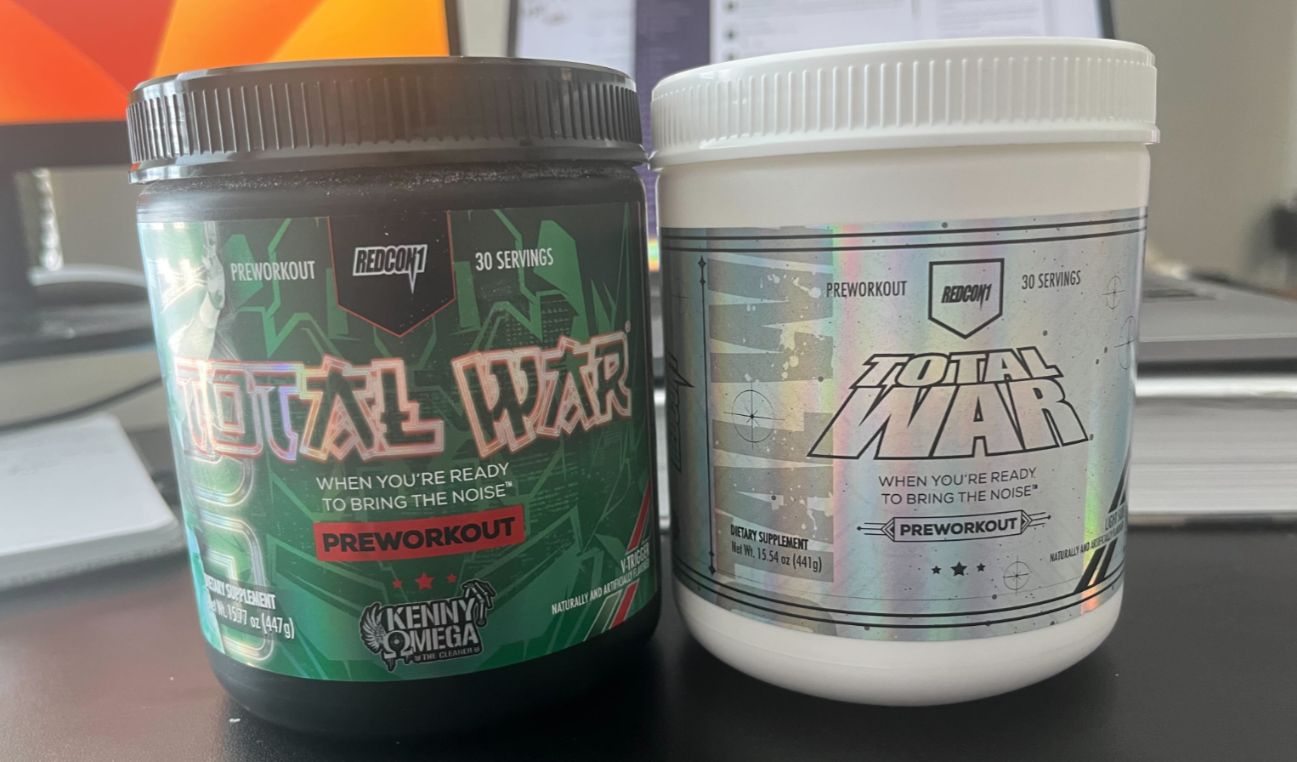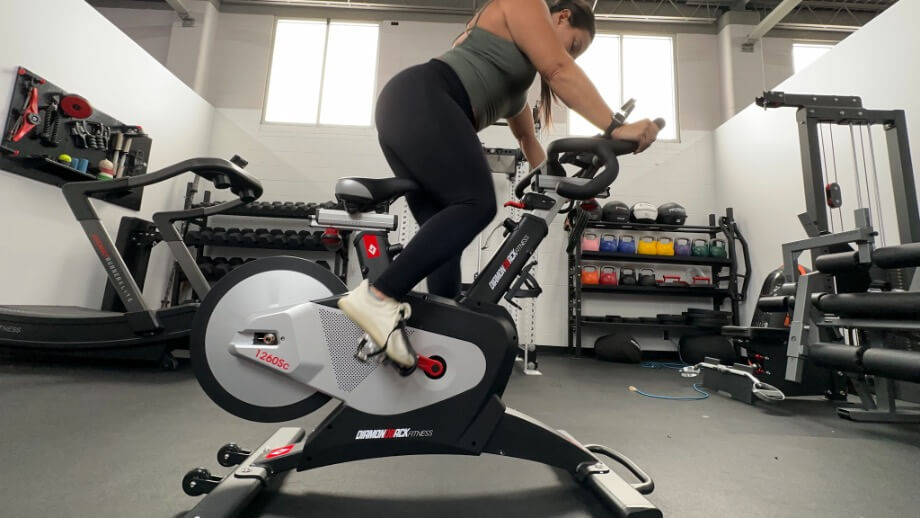Picture this: You just set out on your planned long run for the week. You’re a mile in. And your tummy starts doing The Thing™—it’s bubbling and rumbling. Uh oh. What did you eat? Will you make it through your planned mileage?? Will you have to stop and drop in the woods???
Look, it’s happened to the best of us. Another common scenario is hitting a metaphorical wall halfway through your session and dragging leaden legs through invisible sludge.
Luckily, these things are, for the most part, avoidable. (With the right pre-run meals, that is.)
In this guide to running fuel, we’ll look at how to prepare your body before a run; when to fuel during a run; and how to recover afterward. I’ll also share my favorite running fuel products. Onward!
Medical disclaimer: This article is intended for educational and informational purposes only. It is not intended as a substitute for medical advice. For health advice, contact a licensed healthcare provider.
Fueling Before Your Run
You can section running fuel out into three components: pre-run, intra-run, and post-run. Pre-run fuel is the most important for most sessions, the exception being long runs, where intra-run fuel is extremely crucial (but pre-run food is still super duper important for long runs, too). Here’s how to plan.

The Night Before
If you run in the early morning before you eat a full meal, your nighttime eating habits matter—a lot. Prioritize denser, slow-digesting foods so your body still has readily available energy stores in the morning and doesn’t automatically start pulling from your glycogen stores, the carbohydrate source stored in your muscles and liver.
(Note: Glycogen is a form of carbohydrate that’s stored primarily in your liver and skeletal muscle. According to an April 2018 report in the journal Nutrition Reviews, an athlete’s ability to train day after day depends largely on consumption of dietary carbohydrates to ensure readily available fuel in the form of blood glucose and glycogen.)
Try adding these energy sources to your evening meal:
- Complex carbohydrates: Whole grain foods, beans, lentils, starchy vegetables
- Protein: Poultry, beef, pork, eggs, a protein powder supplement, Greek yogurt
- Fats: Cheese, almonds, peanut butter, chia seeds, nut butters, butter or ghee, olive oil, avocado with sea salt
The combination of these types of foods will keep you full throughout the night and into the morning, so you aren’t dealing with hunger pangs, hunger-induced nausea, low blood sugar, or severe dips in energy during your morning run.
RELATED: Best Protein Powder

The Day Of
Here’s a sample schedule for day-of nutrition to support your run.
Three Hours Before
Ignore this tip if you run in the early morning, since I assume you don’t wake up three hours ahead of your 6 a.m. workout.
RELATED: Best protein powder for weight loss
For those who run later in the day, have a full meal a few hours before you head out. This meal should resemble the nighttime meal described above, but perhaps a little lighter.
I recommend prioritizing complex carbohydrates and protein during this time frame with fewer fats. You’ll want some fats to slow overall digestion, but too much fatty food can lead to digestive discomfort during exercise.
According to a May 2014 review in the journal Sports Medicine, “Gastrointestinal complaints are very common among endurance athletes” and “Anecdotally, gastrointestinal problems are perhaps the most common cause of underperformance in endurance events.” The report goes on to say that “Fiber, fat, protein, and fructose have all been associated with a greater risk of developing gastrointestinal symptoms.”
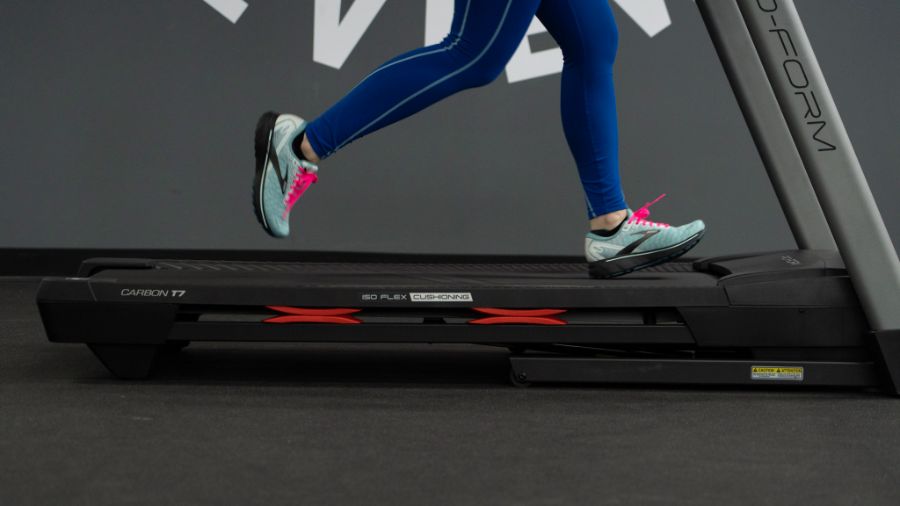
One Hour Before
Have a small meal or large snack. At this point, you’ll want more carbs than protein and fats. You can still eat complex carbs, but throw in some simple, quick-digesting carbohydrates as well because those are converted to energy quickly.
Here are some real food and snack ideas:
- Fresh or dried fruit
- White rice
- Pasta
- Chicken
- Vegetables
- Mashed sweet potatoes
- Fruit snacks
- Granola or granola bars
- Protein shake
- Smoothie
- Crackers
- Popcorn
- Clif bar
- Pretzels
RELATED: Best protein bars
10 Minutes Before
- Hydrate: I recommend drinking about 8 ounces of water, an electrolyte mix, or a sports drink with electrolytes and sugar just before you head out on your run. Guidelines for hydration vary, but a small glass of fluid tends to be enough to start off on the right foot (pun intended) without overdoing it and increasing the need to urinate. (This may change if you have not been prioritizing fluid intake in the 24 hours leading up to this point.)
- Caffeinate: I also like to take a small amount of caffeine a few minutes before a run so that it sets in after about 30 minutes on the pavement. If you have a sensitive stomach and/or don’t fare well with caffeine, you can skip this step.
- Have a small snack: If you’re still hungry after your meal an hour earlier (or didn’t have one at all), have another small snack high in carbs, such as a banana, apple, or granola bar.
RELATED: Best protein chips
Fueling During Your Run
If you run for longer than one hour at a time, you will want to keep some quick running fuel on hand. It’s not necessary if you run for less than an hour, but you can keep some on you for just-in-case moments.
If you have a condition like diabetes or chronic low blood sugar, please talk to your healthcare professional about how to maintain your blood glucose levels during exercise.
When to Fuel During Long Runs
Everyone is different, so there are no hard-and-fast rules about when—and how much—to eat or drink during a long run. However, there are some general guidelines that tend to work for most people.
I follow the “60 every 60” rule, which means I try to consume 60 grams of carbohydrates every 60 minutes. So, if I’m running for two hours, I’ll have 60 grams of carbs at the halfway point, and at least that many when I’m done.
Some runners require more; some can get by with less.
It’s also important to stay hydrated during long runs. As I mentioned earlier, hydration guidelines vary substantially among health and fitness agencies. According to the National Academy of Sports Medicine (NASM), under which I earned a certified nutrition coaching credential, athletes should aim to consume 16 to 32 ounces of fluid per hour during exercise.
This may not apply to those who are smaller-bodied, running in cold climates that don’t cause them to sweat as much, or who simply find drinking that amount of water to be too much.
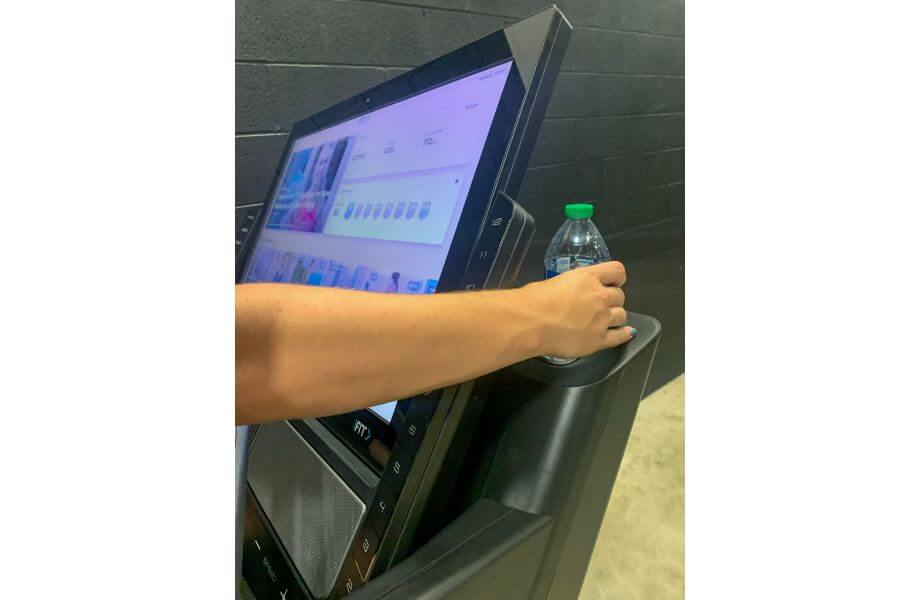
Personally, I average about 12 ounces of fluid per hour during long runs and that works well for me. Much more than that has me dealing with annoyingly excessive urination.
So, I recommend a bit of trial and error to find what works for you.
Also remember: Hydrating should include more than just water. Electrolytes such as magnesium and potassium are essential to prolonged performance and prevention of muscle cramps.
In a March 2019 study in the journal BMJ Open Sport & Exercise Medicine, researchers found that plain “water intake after dehydration makes muscles more susceptible to electrical simulation-induced muscle cramp, probably due to dilution of electrolytes” and “These results suggest that to prevent exercise-associated muscle cramp, it is better to intake fluid containing electrolytes.” However, more research is needed to fully understand how electrolytes act on muscle cramps.
My Favorite Intra-Running Fuel Products
Here are the products I use to keep me going during long runs.
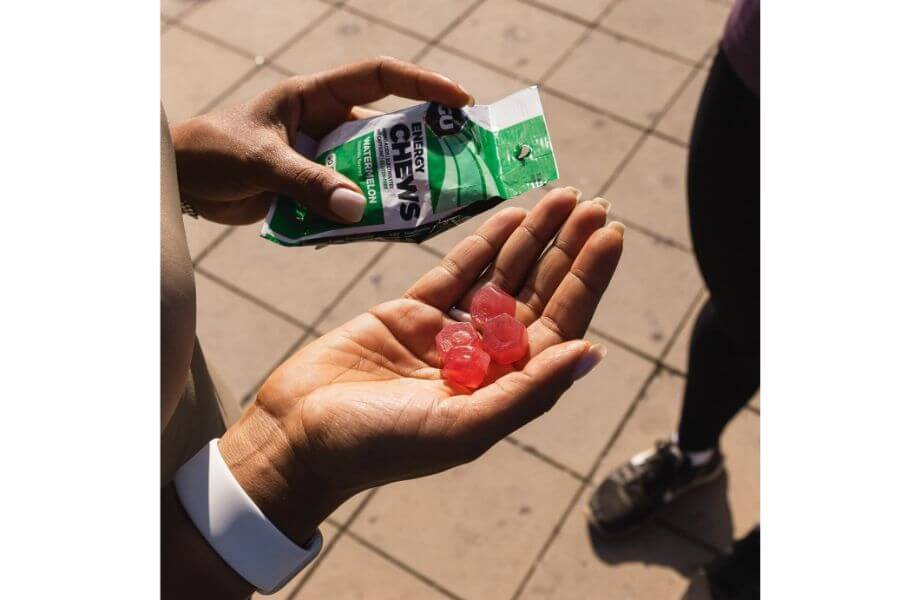
- Best Running Chews: GU Energy Chews
- Best Energy Gels: Huma Energy Gels Plus
- Best Running Hydration: Nuun Sport Electrolyte and Caffeine Tablets
- Best Tasty Running Treat: Honey Stinger Original Waffles
Recovery Fuel
What you consume after a run is just as important as what you consume before a run! When you finish a workout, especially a particularly long or intense one, your body needs nutrients to fully recover—so refuel!
After a run, be sure to provide your body with the following:
- Quick-digesting carbohydrates: Help your body quickly replenish glycogen stores and blood glucose levels.
- Complex carbohydrates: Give your body something to work with for a couple of hours post-run.
- Protein: Help your body repair muscle tissue and rebuild better with the best protein powder for men or the best protein powder for women.
- Fluids with electrolytes: Rehydrate, restore your body’s cellular balance and support continued muscle function. Gatorade and coconut water are good choices.
Fats needn’t be prioritized after a run; in fact, consuming too many fats post-run can impede digestion and absorption of the other important nutrients.
RELATED: How much protein do I need?
My Favorite Running Recovery Fuel
Here are some of my favorite products to supplement with after tough running workouts.
- Hydration Tablets: Nuun Rest Hydration Tablets
- Hydration Powder: Liquid I.V. Hydration Multiplier
- Whey Protein Supplement: Ascent Whey Protein
Final Thoughts on Running Fuel
When it comes to sports nutrition, things are never one-size-fits-all. Each runner is different: The type of run, time of run, and run duration all affect how you should fuel, as do factors such as body size and body weight, goals, allergies, taste preferences, digestive health, and more.
RELATED: Best organic protein powder
In general, most runners will benefit from consuming carbohydrates, protein, and fats a few hours before a run; more carbohydrates about an hour before a run; and plenty of water and electrolytes during a run.
Timing your nutrients correctly before, during, and after training runs can prevent a bonk (the term runners use for “hitting a wall”)
Running Fuel Q&A
What should I eat during a long run?
You probably don’t need to eat anything during a run that lasts less than one hour. If you plan to run for longer than that, take some energy gels, chews, fruit snacks, or other easily digestible carbohydrate sources with you.
How much water should I drink during a long run?
Your hydration needs will differ from someone else’s. The National Academy of Sports Medicine (NASM) recommends 16 to 32 ounces of water with electrolytes per hour of exercise.
What is the best-tasting energy gel for runners?
Everyone’s taste and texture preferences are different, but I’m a fan of GU Energy Chews and Huma Energy Gels. Honey Stinger Waffles are another favorite among endurance athletes and a good choice for those who don’t like the texture of gels and chews.
Is it good to eat energy bars during runs?
Most runners only need to eat during long-distance runs or race days, including half-marathons, full marathons, and ultra-marathons. However, many runners find energy bars too dense and tough to eat mid-run, so many will opt for energy gels, high-calorie sports drinks, or chews instead.
References
- Murray B, Rosenbloom C. Fundamentals of glycogen metabolism for coaches and athletes. Nutr Rev. 2018;76(4):243-259. doi:10.1093/nutrit/nuy001
- de Oliveira EP, Burini RC, Jeukendrup A. Gastrointestinal complaints during exercise: prevalence, etiology, and nutritional recommendations. Sports Med. 2014;44 Suppl 1(Suppl 1):S79-S85. doi:10.1007/s40279-014-0153-2
- National Academy of Sports Medicine. Certified Nutrition Coach. Chapter 11.
- Lau WY, Kato H, Nosaka K. Water intake after dehydration makes muscles more susceptible to cramp but electrolytes reverse that effect [published correction appears in BMJ Open Sport Exerc Med. 2019 Apr 11;5(1):e000478corr1]. BMJ Open Sport Exerc Med. 2019;5(1):e000478. Published 2019 Mar 5. doi:10.1136/bmjsem-2018-000478
- Correction: Water intake after dehydration makes muscles more susceptible to cramp but electrolytes reverse that effect. BMJ Open Sport Exerc Med. 2019;5(1):e000478corr1. Published 2019 Apr 11. doi:10.1136/bmjsem-2018-000478corr1


